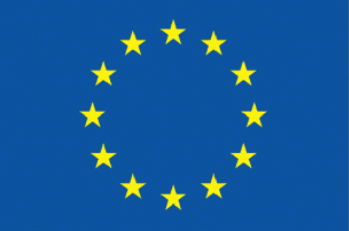
Permanent Structured Cooperation (PESCO)
Deepen defence cooperation between EU Member States


























Permanent Structured Cooperation (PESCO)
Deepen defence cooperation between EU Member States


























PESCO PROJECTS
[CLOSED] European Union Training Mission Competence Centre (EU TMCC)
- Coordinator

- Project
Members -
The PESCO project EU Training Mission Competence Center (EU TMCC) was a project of the first PESCO project wave in March 2018. The overarching aim of the EU TMCC was to improve the availability, interoperability, specific skills and professionalism of personnel involved in EU Training Missions. The focus was on personnel designated to staff positions at the operational and strategic levels and mainly within the framework of an individual employment (e.g. mentors, advisors).
During the workshops the project members developed and agreed on potential tasks of a EU TMCC, compared and analysed the training demands of the participating Nations and identified and consulted relevant EU institutions which could have incorporated the identified tasks of a EU TMCC into existing structures.
Thorough discussions with representatives of the EU Military Staff, the Military Planning and Conduct Capability (MPCC), the EU Military Training Group (EUMTG), the European Security and Defence College (ESDC) and the Eurocorps finally showed, that the coordinative tasks and the training demands expressed by the nations are already structurally and organisationally addressed in the framework of existing EU entities and processes, but currently not well interlinked and aligned. Based on these considerations the project Members finalized a set of recommendations, how existing structures and processes could be developed and adapted to improve the training of personnel involved in EU Training Missions without establishing a dedicated EU TMCC. Thereby a duplication of existing structures and processes and the unnecessary allocation of already scarce resources could be prevented and synergies leveraged. The project members decided to close the project in 2020 with that set of recommendations, which could be adapted within EU institutions.
All Projects
- European Defence Airlift Training Academy (EDA-TA)
- Chemical, Biological, Radiological and Nuclear (CBRN) Surveillance as a Service (CBRN SaaS)
- [CLOSED] European Training Certification Centre for European Armies (ETCCEA)
- Helicopter Hot and High Training (H3 Training)
- Joint EU Intelligence School (JEIS)
- Integrated European Joint Training and simulation Centre (EUROSIM)
- EU Cyber Academia and Innovation Hub (EU CAIH)
- Special Operations Forces Medical Training Centre (SMTC)
- CBRN Defence Training Range (CBRNDTR)
- European Union Network of Diving Centres (EUNDC)
- [CLOSED] European Union Training Mission Competence Centre (EU TMCC)
- [CLOSED] EU Test and Evaluation Centres (EUTEC)
- Counter Battery Sensors (CoBaS)
- Deployable Military Disaster Relief Capability Package (DM-DRCP)
- Armoured Infantry Fighting Vehicle / Amphibious Assault Vehicle / Light Armoured Vehicle (AIFV/AAV/LAV)
- EU Military Partnership (EU MilPart)
- Integrated Unmanned Ground System (UGS)
- Integrated Unmanned Ground System 2 (UGS2)
- EU Beyond Line Of Sight (BLOS) Land Battlefield Missile Systems (EU BLOS)
- Main Battle Tank Simulation and Testing Center (MBT-SIMTEC)
- [CLOSED] Indirect Fire Support Capability (EuroArtillery)
- [CLOSED] EUFOR Crisis Response Operation Core (EUFOR CROC)
- Anti-Torpedo Torpedo (ATT)
- Essential Elements of European Escort (4E)
- Critical Seabed Infrastructure Protection (CSIP)
- European Patrol Corvette (EPC)
- Maritime (semi) Autonomous Systems for Mine Countermeasures (MAS MCM)
- Harbour and Maritime Surveillance and Protection
- Upgrade of Maritime Surveillance (UMS)
- Deployable Modular Underwater Intervention Capability (DIVEPACK)
- Maritime Unmanned Anti-Submarine System (MUSAS)
- Medium size Semi-Autonomous Surface Vehicle (M-SASV)
- Air Power
- Airborne Electronic Attack (AEA)
- European Medium Altitude Long Endurance Remotely Piloted Aircraft Systems – MALE RPAS (Eurodrone)
- [CLOSED] European Attack Helicopters TIGER Mark III
- Future Short-Range Air to Air Missile (FSRM)
- Future Medium-size Tactical Cargo (FMTC)
- Integrated Multi-Layer Air and Missile Defense system (IMLAMD)
- Counter Unmanned Aerial System (C-UAS)
- Next Generation Medium Helicopter (NGMH)
- Small Scalable Weapons (SSW)
- Strategic Air Transport for Outsized Cargo (SATOC)
- Rotorcraft Docking Station for Drones
- Arctic Command & Control Effector and Sensor System (ACCESS)
- Automated Modelling, Identification and Damage Assessment of Urban Terrain (AMIDA-UT)
- Cyber Ranges Federations (CRF)
- European Secure Software defined Radio (ESSOR)
- Cyber Threats and Incident Response Information Sharing Platform (CTIRISP)
- Cyber Rapid Response Teams and Mutual Assistance in Cyber Security (CRRT)
- Strategic C2 System for CSDP Missions and Operations (EUMILCOM)
- European High Atmosphere Airship Platform (EHAAP) – Persistent Intelligence, Surveillance and Reconnaissance (ISR) Capability
- One Deployable Special Operations Forces (SOF) Tactical Command and Control (C2) Command Post (CP) for Small Joint Operations (SJO) – (SOCC) for SJO
- Electromagnetic Warfare Capability and Interoperability Programme for Future Joint Intelligence, Surveillance and Reconnaissance (JISR)
- Cyber and Information Domain Coordination Center (CIDCC)
- Robust Communication Infrastructure and Networks (ROCOMIN)
- Network of Logistic Hubs in Europe and Support to Operations (NetLogHubs)
- Military Mobility (MM)
- Energy Operational Function (EOF)
- Geo-meteorological and Oceanographic (GeoMETOC) Support Coordination Element (GMSCE)
- Timely Warning and Interception with Space-based TheatER surveillance (TWISTER)
- Materials and components for technological EU competitiveness (MAC-EU)
- EU Collaborative Warfare Capabilities (ECoWAR)
- European Global RPAS Insertion Architecture System (GLORIA)
- ROLE 2F
- [CLOSED] Co-basing
- [CLOSED] European Medical Command (EMC)
